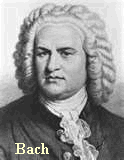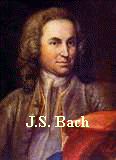![]()
![]()
![]()
![]()
![]()
![]()
![]()
![]()
![]()
![]()
![]()
![]()
![]()
![]()
![]()





Then what is there to be realized about this kind of music if some are naturally inclined to understand it and others seem not to be so inclined? Is it really that difficult essentially to understand, or is it that some just do not have the innate tendency or whatever else it may take to really appreciate the classical pieces? As was previously stated, familiarization with the classical style is relevant to the question of its comprehension. As one sets out upon the task of learning to appreciate this music, one will definitely recognize the ease in comprehension which is associated with getting to know a particular composer. Once a composer's music or even one composition of that composer becomes familiar, a newly born comprehension of the classical style has taken seed. Some composers are easier to approach than others for beginners, such as Mozart, for example, who may be easy to follow for many. Unlike Bach, Mozart tends to maintain a more simple premise. Bach can become complex until the ear is readied through exposure to those composers who cannot match his sheer mastery, yet Mozart is immeasurably brilliant and most inspiring to get to know. Still the accomplishment of familiarizing oneself with the classical music style may not contain the truth of the actual difficulty of classical music for its essential nature; it might still remain beyond many of us. Evidence for this level of difficulty in cultivating an understanding of classical music to the point of readiness to hear it without expecting effort to so hear it is to be found in the level of appreciation a knowledgeable person might hold for, say, Handel, to whom he or she may listen constantly. Nevertheless. when hearing a piece on the radio and trying to identify it by composer of the Baroque period from which Handel emanates, that person may fail to properly identify even his or her favorite composer! How is this to be explained? It must be true that classical music is more than pretension and embellishment else it would not have endured as it has through the centuries. Baroque music, for example, has endured from its most concentrated flourishing in the 1600's and until 1750 with the passing of Bach.
This history, this antiquity in the generic sense of the term classical music, certainly validates by its worth a closer analysis if we are to approach a fuller sense of the beauty and power of classical music. It means that there must be something there in such music which anyone can approach as a valid source and from which one can enjoy a more fully developed sense for music. Any art which passes the test of time has passed indeed the test of truth, and that truth is by dint of its lasting nature
 therefore deemed to be of universal
level. Many contemporary composers like me write in the classical
style, and thus we humble ourselves to our perceptions of its
particular truth. The term classical is broad enough to include even
diverse eras of music from the olden days, yet it can also mean that
which is distinct from popular music, the music you are likely to hear
referred to as folk music which lives among the people in everyday
life and is very close to their hearts. This is music they are likely
to render together and is often handed down. In our day we see the
influence of technology causing a proliferation of styles and
traditions which transcends geography, the locale or the nation, and
this proliferation brings about cultural influence globally. This is
in a sense popular music on a scale which has no precedent in history.
Thus, it becomes a challenge to understand something of our cultural
roots even as we are inundated with so much easily available recorded
music and from so many ethnic roots.
therefore deemed to be of universal
level. Many contemporary composers like me write in the classical
style, and thus we humble ourselves to our perceptions of its
particular truth. The term classical is broad enough to include even
diverse eras of music from the olden days, yet it can also mean that
which is distinct from popular music, the music you are likely to hear
referred to as folk music which lives among the people in everyday
life and is very close to their hearts. This is music they are likely
to render together and is often handed down. In our day we see the
influence of technology causing a proliferation of styles and
traditions which transcends geography, the locale or the nation, and
this proliferation brings about cultural influence globally. This is
in a sense popular music on a scale which has no precedent in history.
Thus, it becomes a challenge to understand something of our cultural
roots even as we are inundated with so much easily available recorded
music and from so many ethnic roots.What facet of this great classical tradition can be found which will explain its longevity? Of what exact truth does one speak which had preserved this music across the ages? Such truth must lie within the music and not within the history of its own era if it is still so relevant today; indeed, this strident presence of truth within the sound of classical music even outside the history of the particular era from which it had arisen had definitely influenced its conception. There is something about the classical score by definition which had caused it to transcend the time in its own time and achieve wide recognition. That transcendence is after all what we are seeking to know. Whether or not it is even classical by sound and also contemporaneous, a transcendence in time is the essential goal of great art.
With that elaborate inquiry, perhaps we can now expect to find that a more rigorous analysis is in order if we are to solve this question of the essence of classical music; then, an
 individual who feels left
outside of the joy of classical music will give latitude to the
prospects of its beauty and message and perhaps will open up to it.
Such
elucidation should open the door to a vast library of great and
enlightening works of the brilliant classical composers whose
commodious musical hearts still sing today.
individual who feels left
outside of the joy of classical music will give latitude to the
prospects of its beauty and message and perhaps will open up to it.
Such
elucidation should open the door to a vast library of great and
enlightening works of the brilliant classical composers whose
commodious musical hearts still sing today.The second lesson so vital to the new student of classical composition is a richer form of familiarization -- it is memory. Memory will teach the listener the meaning and message of a classical work. Knowing that the truth of a composer's intent in a given piece of music is contained in the power of the memory to interconnect one part or section of that piece to another is the next step in familiarization; this element of memory for its power in comprehending classical music was previously explicated, Using memory is actually the method of learning a piece of music. The integrating of one part of a composition into another part will elucidate greatly the vision of the composer in a particular written work. That integration occurs as recognition of the whole arises out of the memory of the parts which came before. When such recognition comes forth in the mind, the music itself is enjoyable most completely. As the recognition forms in the mind in an almost sequential fashion of deepening understanding, someone has arrived at the truth of classical music. This brings about an engrossing and indescribably rewarding experience and realization for many. What had been a puzzle is now giving light. One point remains here, and this is an important point: some of those who accomplish the greatest achievements were once considered by their teachers and others to be inept or disqualified. The truth of destiny in such individuals to rise to the top and contribute actually had been thwarted by the process of enlightenment which had taken force. Truth unfolds like a blossoming flower at its best, and truth gives immediate results. However, when truth is in seed form, it can be hidden as it is hidden to a mind grasping its essence from nowhere. Therefore, even the one who has rebuked the great classical traditions of music as flowery sentimentality with no depth or substance, for instance, may become the most ardent devotee of classical music ever. This ability to come over to the meaning and substance to be found in classical music from refuting it most totally derives from the nature of truth. Truth does not abate in the eye of ignorance; truth only subsists until the light is given. It is yours to be found in the rich garden of classical music. In the rich garden of classical music will its flowers blossom in your hearts, and their fragrance will imbue your minds, lending inspiration which is a correlate of the very inspiration which had filled the being of the composer
 who had
conceived of its form and heard its sound.
who had
conceived of its form and heard its sound.This composer finds the power of classical music to be miraculous in its leverage to express. Now imagine exploring that statement by learning of the music being offered at Starkmusic.org, or from any public library where the music awaits the next borrower no matter who the composer. We musicians live to be heard, yet there is a barrier to be crossed for those who remain apart from this beautiful tradition of music due to its often complex nature. Few musicians or composers take the time and effort to break down that barrier to understanding classical music. Instead, they rely more directly upon the rendition of music to make their statement.
Having cited in the previous paragraph the two fundamental
lessons in developing a love for classical music, the answer to our
first query on this page can now be explored and hopefully without
losing the focus of those who have followed thus far. These points
of truth in our inquiry as to the essence of classical music are finer and may seem at first for some too subtle for learning and
applying. If that becomes the case for anyone sincerely interested in
coming over to the side of a cultural reassessment and trying
therefore to understand classical music, then the solution lies in
relying upon intuition only and in listening first according to the
prescription above. Any analysis of a more in-depth kind can be
undertaken later on when a sense of accomplishment in learning to
appreciate this kind of music has already occurred.
Now the way is clear for us to return to the query which was unraveled above, therefore, simply by considering the difficulty which is so inherent to the deep understanding of classical music. Fundamentally, many forms of classical music rely upon a certain larger structure in order to elaborate upon a statement. One entire movement may be of slow tempo, termed andante, for example, and it may be enclosed by first a fast tempo movement, or allegro, preceding it and then another faster tempo movement following it. However, the essential characteristic of music which causes it to be understood much as a progressive conversation or soliloquy can be seen as one elucidation. Music elucidates. That elucidation is in short the message or meaning of the piece. That meaning of the overall piece is given by the summation together of many, many elucidations to be found within the piece as it progresses from note to note in a microstructure window or from movement to movement in a macrostructure window. Whether analyzing from the microstructure or the macrostructure breakdown, music sheds light upon the listeners and performers.
Recall in the essay Derivations on Music here at this web site the three modes of expression as being synthesis, perfection and antithesis. In the mode of perfection, elucidation is characteristically obvious and spontaneous such that the timing and melody fuse, the harmonics are transparent, and the effect is sheer reward: the pleasing nature of how it sounds stands out in a remarkable way. Many if not most of such perfection passages are of brilliant melodic empathy, and powerfully so. In fact, the elucidation becomes so unmistakably prominent in a thesis or a perfection passage that any next passage can only qualify it; thus the next elucidation can be either agreeable to it and synthetic or contrary to it and antithetical. Either way, the next elucidation after the supreme statement through perfection's elucidation is mathematically a corollary and in the way of meaning a subsidiary. Yet in either case, elucidations remain.
If so much of our perception and understanding of classical music relies upon the power and use of memory, then perhaps the key to the leading question of this article, Elucidations on Music, as to the difficulty found in achieving a knowledge of this music is to be found in the rarefied element of time. Time is the hand of music; and timing comprises as much the fingers of music. Memory calls back in time in a mechanistic sense the same handiwork, the same dexterity which had expressed previously, but without the physical component of the moving hand which plays the instrument or the voice which sings the song. Thus the mechanism which is memory in music is somewhat ephemeral or transitory and subliminal as well as past the actual physical production of the sound comprise in general. Memory reaches back in time and hears inferentially the records or impressions which had come before on the scale of time. In such influence of memory as superimposed upon the current moment of sound or as infused into the actual music of the present instant of time, the music as it is being heard is thus rendered complex. The music is thus made complex because its meaning and impact to the listening mind are non-spontaneous while they seem to be at the same time spontaneous due in part to the power of the mechanical sound itself being produced so momentously according to a definite commitment to beats in time, to rhythms as those beats duly aggregate. Therefore, as one mode is derived from another mode, such as, for example, an antithetical sentiment opposing a certain thesis, the derivation thus formed is formed of time; in time as it passes comes a derivation, and such derivation involves the power of memory. This memory can be more indirect, of course, than that which is known as one mode contiguous to the next, so that derivations can actually build throughout a symphony, for instance, and form a macro-structure of three or four movements.
Consider this place of memory in music to thus unify through time, through beats in large summation, and realize that the language of music is most diffuse while it purports a directness. Is this not why classical music is so esoteric to the unconditioned ear and so complex even to those who study it assiduously? Have you ever observed someone who relies upon a less subtle music style for entertainment object to the classical piece as quite hypocritical in its meaning as if it intends profound meaning, yet in the directness of the moment as it is being heard, that very meaning is vague if not lost? We have all been there, quite lost and left to wonder, what is all this music really about?
Thus the hypothetical conclusion that derivations and elucidations are definitionally synonymous can now be considered, and such consideration should explicate further the true complexity of classical music. Certainly, any elucidation in a classical piece can only be viewed or understood in a context of derivational enterprise or of an interconnected context. However, that point alone does not refute the concept of an elucidation as a moving presence and force of great substance in classical works. Since the differentiation between these two elements of music structure, derivation and elucidation, is of an ultimate level of subtlety, that differentiation is most difficult to cognize. The key to understanding the essential difference between a derivation and an elucidation is to realize that a musical statement no matter if brief like a phrase or long like a passage or a movement arises outside of a continuum theoretically while it at the same time occurs in that continuum necessarily. That is to say, such a statement is an entity unto itself.
Now the way is clear for us to return to the query which was unraveled above, therefore, simply by considering the difficulty which is so inherent to the deep understanding of classical music. Fundamentally, many forms of classical music rely upon a certain larger structure in order to elaborate upon a statement. One entire movement may be of slow tempo, termed andante, for example, and it may be enclosed by first a fast tempo movement, or allegro, preceding it and then another faster tempo movement following it. However, the essential characteristic of music which causes it to be understood much as a progressive conversation or soliloquy can be seen as one elucidation. Music elucidates. That elucidation is in short the message or meaning of the piece. That meaning of the overall piece is given by the summation together of many, many elucidations to be found within the piece as it progresses from note to note in a microstructure window or from movement to movement in a macrostructure window. Whether analyzing from the microstructure or the macrostructure breakdown, music sheds light upon the listeners and performers.
Recall in the essay Derivations on Music here at this web site the three modes of expression as being synthesis, perfection and antithesis. In the mode of perfection, elucidation is characteristically obvious and spontaneous such that the timing and melody fuse, the harmonics are transparent, and the effect is sheer reward: the pleasing nature of how it sounds stands out in a remarkable way. Many if not most of such perfection passages are of brilliant melodic empathy, and powerfully so. In fact, the elucidation becomes so unmistakably prominent in a thesis or a perfection passage that any next passage can only qualify it; thus the next elucidation can be either agreeable to it and synthetic or contrary to it and antithetical. Either way, the next elucidation after the supreme statement through perfection's elucidation is mathematically a corollary and in the way of meaning a subsidiary. Yet in either case, elucidations remain.
If so much of our perception and understanding of classical music relies upon the power and use of memory, then perhaps the key to the leading question of this article, Elucidations on Music, as to the difficulty found in achieving a knowledge of this music is to be found in the rarefied element of time. Time is the hand of music; and timing comprises as much the fingers of music. Memory calls back in time in a mechanistic sense the same handiwork, the same dexterity which had expressed previously, but without the physical component of the moving hand which plays the instrument or the voice which sings the song. Thus the mechanism which is memory in music is somewhat ephemeral or transitory and subliminal as well as past the actual physical production of the sound comprise in general. Memory reaches back in time and hears inferentially the records or impressions which had come before on the scale of time. In such influence of memory as superimposed upon the current moment of sound or as infused into the actual music of the present instant of time, the music as it is being heard is thus rendered complex. The music is thus made complex because its meaning and impact to the listening mind are non-spontaneous while they seem to be at the same time spontaneous due in part to the power of the mechanical sound itself being produced so momentously according to a definite commitment to beats in time, to rhythms as those beats duly aggregate. Therefore, as one mode is derived from another mode, such as, for example, an antithetical sentiment opposing a certain thesis, the derivation thus formed is formed of time; in time as it passes comes a derivation, and such derivation involves the power of memory. This memory can be more indirect, of course, than that which is known as one mode contiguous to the next, so that derivations can actually build throughout a symphony, for instance, and form a macro-structure of three or four movements.
Consider this place of memory in music to thus unify through time, through beats in large summation, and realize that the language of music is most diffuse while it purports a directness. Is this not why classical music is so esoteric to the unconditioned ear and so complex even to those who study it assiduously? Have you ever observed someone who relies upon a less subtle music style for entertainment object to the classical piece as quite hypocritical in its meaning as if it intends profound meaning, yet in the directness of the moment as it is being heard, that very meaning is vague if not lost? We have all been there, quite lost and left to wonder, what is all this music really about?
Thus the hypothetical conclusion that derivations and elucidations are definitionally synonymous can now be considered, and such consideration should explicate further the true complexity of classical music. Certainly, any elucidation in a classical piece can only be viewed or understood in a context of derivational enterprise or of an interconnected context. However, that point alone does not refute the concept of an elucidation as a moving presence and force of great substance in classical works. Since the differentiation between these two elements of music structure, derivation and elucidation, is of an ultimate level of subtlety, that differentiation is most difficult to cognize. The key to understanding the essential difference between a derivation and an elucidation is to realize that a musical statement no matter if brief like a phrase or long like a passage or a movement arises outside of a continuum theoretically while it at the same time occurs in that continuum necessarily. That is to say, such a statement is an entity unto itself.
Mathematically it is such that
a musical statement in the generic sense is an entity unto
itself. Logically also this is so. Yet when such a musical statement beseems a
given musical piece, it is not easily viewed as independent from that
given piece. This interconnectedness of the flow of music is the very
barrier which will inhibit many composers and performers from
achieving a knowledge of a sure practice of the level necessary to
ascend into the elucidational categorical hold. In actuality, such an
achievement in music whether composing or performing or both as to
feel the spirit of elucidational perfection and then to impart that
intuitive feeling is essentially nothing more than to become more
brilliant and much closer to perfection. Of all the composers
who have demonstrated the ascension to elucidations in their
compositions, Bach is the one who is most capable of achieving
elucidations.
from
achieving a knowledge of a sure practice of the level necessary to
ascend into the elucidational categorical hold. In actuality, such an
achievement in music whether composing or performing or both as to
feel the spirit of elucidational perfection and then to impart that
intuitive feeling is essentially nothing more than to become more
brilliant and much closer to perfection. Of all the composers
who have demonstrated the ascension to elucidations in their
compositions, Bach is the one who is most capable of achieving
elucidations.
To be continued...still being written...©2001 All Rights Reserved.
Marilynn Lea Stark
Composer and Founder, Starkmusic.org
October 31, 2001
3:30 A.M.
 from
achieving a knowledge of a sure practice of the level necessary to
ascend into the elucidational categorical hold. In actuality, such an
achievement in music whether composing or performing or both as to
feel the spirit of elucidational perfection and then to impart that
intuitive feeling is essentially nothing more than to become more
brilliant and much closer to perfection. Of all the composers
who have demonstrated the ascension to elucidations in their
compositions, Bach is the one who is most capable of achieving
elucidations.
from
achieving a knowledge of a sure practice of the level necessary to
ascend into the elucidational categorical hold. In actuality, such an
achievement in music whether composing or performing or both as to
feel the spirit of elucidational perfection and then to impart that
intuitive feeling is essentially nothing more than to become more
brilliant and much closer to perfection. Of all the composers
who have demonstrated the ascension to elucidations in their
compositions, Bach is the one who is most capable of achieving
elucidations.
To be continued...still being written...©2001 All Rights Reserved.
Marilynn Lea Stark
Composer and Founder, Starkmusic.org
October 31, 2001
3:30 A.M.

Dear Citizens of the Net:
Please visit my adjunct Web site devoted to other art forms, including visual art, poetry and also metaphysical writings and commentary. which is located at Starkartistry.com. This site opens with my epic poem entitled "Freedom Source." This poem concerns the place of the individual in the Nuclear Day and the power of knowledge of the self to protect and preserve. Its seed verse may preview quite tersely the larger message of the work, which is over three hundred verses long. The seed verse is as follows:
Freedom source is freedom found each time referential to the Self, the individual rebounds
From corrupted power ploy designed to overthrow the place of mastery by truthful deed;
This moment so majestic in its worth, so universal its power, throughout the nation resounds
Its awesome cry to all the people : that freedom source for that one becomes for all freedom's planted seed.
From "Freedom Source" by Marilynn Lea Stark
B.A., Barnard College of Columbia University
Update on Starkartistry.com:

- A Web page of interest: On Skiing: The Metaphysics
- A second new Web page with a second, newer epic poem called: Freedom Camp
- There is a political commentary for your interest at Starkartistry.com
entitled OH SAY NATION. Please click onto the banner below to
navigate directly to it. New editorials are published
periodically. One of special interest in these times concerns how we might counter any
rise of terrorism as citizens in everyday life, and is entitled, Terrorism
As A Practice: How It Can Be Countered.


© 1999-2002 www.clipartconnection.com
Join the mailing list for Music Compositions by Composer Marilynn Stark here
 below. You will then receive newsletters and various updates as
this Website develops. As a subscriber you will also receive
special offers and may contribute to the dynamics of the enterprise.
Welcome.
below. You will then receive newsletters and various updates as
this Website develops. As a subscriber you will also receive
special offers and may contribute to the dynamics of the enterprise.
Welcome.
©2000-2012 By Marilynn Stark All Rights
Reserved
This page last edited on: 02/24/2012 02:28 AM